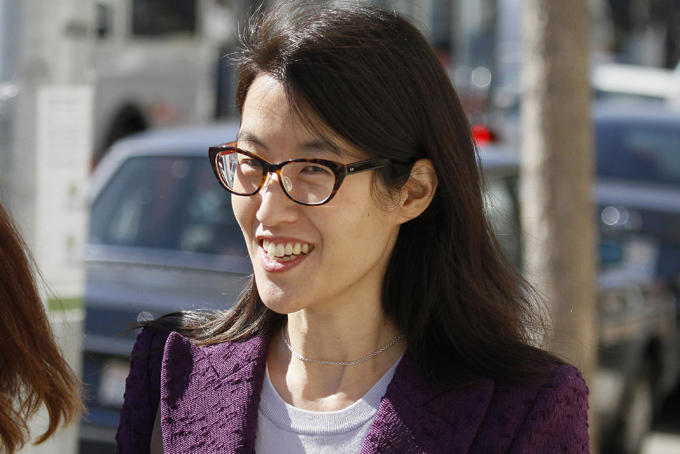
SAN FRANCISCO (AP) — A sex discrimination trial against one of Silicon Valley’s most prestigious venture capital firms is providing a rare peek into the elite investment companies vying to fund the next Google and Amazon.
Their partnership rosters are stacked with some of the nation’s most accomplished graduates— multiple-degree holders from schools such as Harvard and Stanford universities.
But they are also places where women are grossly underrepresented.
Ellen Pao’s lawsuit against Kleiner Perkins Caufield & Byers describes the firm as an old-boys club where women allegedly were excluded from parties at former Vice President Al Gore’s house, asked to take notes at a meeting like secretaries, and subjected to harassment and boorish behavior by their male colleagues such as a conversation about porn stars and a trip to the Playboy Mansion aboard a private jet.
The case has put a spotlight on the gender inequities in the technology sector at a time when it is booming and minting new millionaires, while generating resentment from people who feel left out and victimized by its success, which they blame for higher rents and gentrification.
Pao, who has an MBA and law degree from Harvard, has mostly sat quietly and declined media questions during breaks in the proceedings. She could begin testifying on Friday.
The jury has heard hours of testimony from her former colleagues and an investigator hired by Kleiner Perkins to investigate a separate claim of sexual harassment by another female employee at the firm and Pao’s claim.
The investigator, Steve Hirschfeld, substantiated the harassment claim, but concluded the evidence didn’t support Pao.
Therese Lawless, an attorney for Pao, questioned the thoroughness of Hirschfeld’s investigation on Friday, asking why he didn’t review a female employee’s analysis of the performance of men and women at the firm and interview a male colleague Pao said had retaliated against her when she broke off an affair with him.
Hirschfeld said he felt he had gathered the information he needed and the colleague lacked credibility.
The jury has also heard from one of Pao’s mentors at the firm, billionaire investor John Doerr, who was placed in the awkward position of defending his company while acknowledging that the dearth of females in the venture capital industry is “pathetic.”
A study released last year by Babson College in Massachusetts found that women filled just 6 percent of the partner-level positions at 139 venture capital firms in 2013, down from 10 percent in 1999.
Doerr said 20 percent of partners at Kleiner Perkins are women, and he has worked hard to recruit more women. He has disputed Pao’s contention that she was passed over for promotions because she was a woman and then fired in 2012 after she complained.
Like the Kleiner Perkins legal team, he says Pao, 45, didn’t get along with her colleagues — a requirement for the junior partner position she moved into in 2010 after serving as his chief of staff.
In a sign of the competitiveness of the industry, Doerr said of the 24 junior partners the firm has taken on during his tenure, only five were promoted. The rest, like Pao, were asked to move on.
As a member of the Kleiner Perkins management team, Doerr said he fought for Pao to stay with the company and objected when other partners wanted to let her go in 2011.
Copyright 2015 The Associated Press. All rights reserved. This material may not be published, broadcast, rewritten or redistributed.